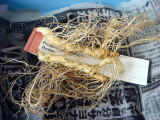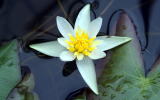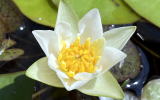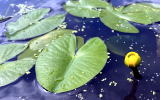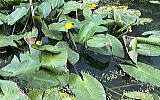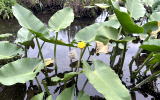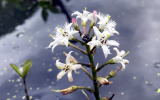Plants in fields, moutntains and alpines Unusual and rare plants Japanese Nursery
YUZAWA ENGEI LLC.
-Water Garden Plants-
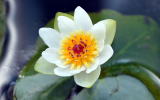
Nymphaea tetragona var. erythrostigmatica
8,000 Yen
From the northern area of Hokkaido.
The stigma of the pistil and the surrounding stamens turn deep red.
It is difficult to grow in pots because it is weak to high water temperatures in summer.
The key to growing it is to plant it directly in a pond so that the roots do not get warm.
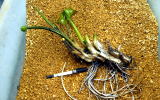
A sample image of Nuphar, Nymphaea and other water plants.
It is a mature plant dug up from a cultivation reservor.
Our reservor totally freezes over in the end of November and after that the plant cannot be dug up, so orders must be placed by the end of November.
Since the plants sprout quickly, shipping will be closed by mid-February.
sYUZAWA ENGEI
This is bare rooted plants after we cleaned.
Our shipping period is only in plant's resting stage.
(We clean plants according to the strict Japanese quarantine inspection's
base.)
